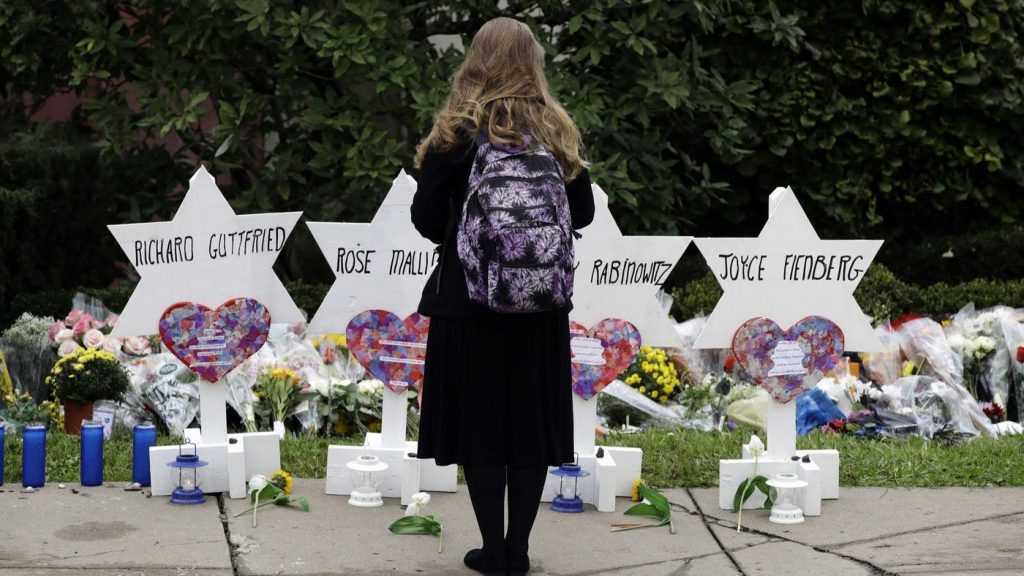We are saddened beyond words and grieve for the lives lost by the attack on the Etz Chaim (Tree of Life) Synagogue in Pittsburgh last Saturday. We are not surprised, however. You only need to glance at the vast literature on genocide and political violence to understand that in an environment of institutionally backed hate speech, the accumulation of hate crimes and smaller acts of bigotry, a major attack usually follows.

Earlier this year the Anti-Defamation League reported nearly 2,000 anti-Semitic incidents occurred , an increase of almost 60% from the year before and the highest rates in the United States in decades. In 2017, all 50 states reported anti-Semitic hate crimes, the first time since 2010. From Holocaust deniers running for Congress to the dramatic increase in white supremacist language on American campuses, anti-Semitism is becoming normalized. As the ADL Director Johnathan Greenblatt said on last Sunday’s ‘This Week’: “We are seeing an environment in which antisemitism has moved from the margins to the mainstream as political candidates and people in public life literally repeat the rhetoric of white supremacists.” Tragically, this hatred manifested itself again on Saturday in Pittsburgh, resulting in the deadliest act of violence committed against Jews in American history.
The rise of anti-Semitism coincides with the rise of the Trump White House. In our post from two years ago, titled November 9th, Infamous Past, Disturbing Present, published just after the Trump election and the Kristallnacht anniversary, we remembered that the path that leads from verbal incitement to murderous action can be very short.
54% of Americans believe that the Trump presidency has enabled a culture of hatred and anti-Semitism not to only find acceptance, but to grow. With Trump as a catalyst for a resurgent culture of hatred to grow, it clearly comes from quite fertile ground.
Toxic language, like that found on The Gab (a frequent online meeting place of the alt-right) isn’t reserved to the hidden corners of the internet. Hate speech, and antisemitism in particular, is easy to find across social media. Facebook made news earlier this year when it appeared to side with Holocaust deniers when it was unwilling to remove content that questioned the Holocaust. This doesn’t take into account the groups that use Facebook as a tool to spread hatred and conspiracy ideas across the globe. Just yesterday, the New York Times highlighted thousands of posts on Instagram, a company owned by Facebook, that spread antisemitic hate speech in the wake of the Pittsburgh attack. Twitter isn’t immune either; an ADL report from 2017 found that tens of thousands of anti-Semitics tweets are sent out every day, and in some cases account for nearly 9% of tweets at a given time.
This escalation in antisemitism in the United States is extremely troubling. Even more alarming is the fact, that it is often legitimized by people in positions of power that are supposed to condemn and combat it.
We, students, faculty and staff at the Center for Holocaust and Genocide Studies are committed to confront head on, and with all the means at our disposal the toxic dissemination of hate speech that incites political violence. The task is not small, but we are committed to combating it with others. It is time for all to stand up.

Comments